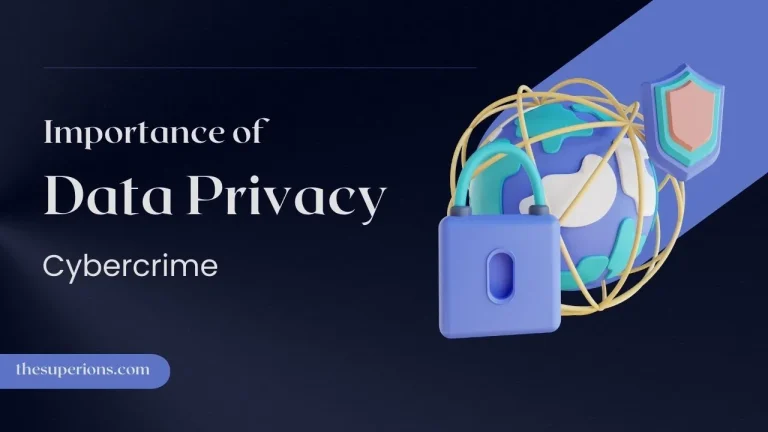Harnessing Data Science for Fintech Growth: Strategies, Tools, and Real-World Results

Key Takeaways
- Data science is a transformative force in fintech, driving smarter risk assessments, advanced fraud prevention, and personalized user experiences.
- Integrating cutting-edge technologies and analytics strategies enables businesses to remain agile, responsive, and customer-centric.
- Consulting firms provide critical guidance and insight for fintechs looking to harness the full potential of their data assets.
- Data privacy and consumer trust must be prioritized to foster sustainable fintech innovation and build lasting customer relationships.
What is Driving Fintech’s Rise Through Data Science?
The landscape of financial technology has dramatically shifted over the last decade, and this transformation is primarily credited to the prolific rise of data science applications. Data science has fueled the sector’s remarkable growth as startups and established institutions race to keep pace with consumer expectations and regulatory changes. Once limited by manual processes, startups now leverage enormous datasets to automate decision-making, predict market shifts, and create innovative digital products. This dynamic shift is further supported by expert guidance from consultancies such as Cane Bay Partners, which assist organizations in orchestrating analytics strategies, compliance solutions, and product launches that thrive in data-rich environments.
Related Article: Top 10 Magento Extension Development Companies: 2025 Guide
The results of these changes are evident in global investment trends. The fintech sector saw over $210 billion in investments in 2022 alone, showing how capital flows towards organizations that use data as a competitive asset. According to Statista, this level of investment growth has been spurred by platforms able to harness real-time user data, transaction records, and even alternative credit metrics. Increasingly, fintechs are delivering products that are more tailored, accessible, and seamless than ever, offering everything from predictive savings to instant digital loans. This level of sophistication is only possible with the proper analytical infrastructure and vision.
Major Areas Where Data Science Transforms Fintech
A closer look at how fintech firms utilize data science reveals three domains with significant impact: risk assessment, fraud prevention, and the customer experience. Traditional credit models, mainly based on FICO scores and historical data, have given way to AI-powered credit decisions incorporating wider data sources, including user behavior and alternative income metrics. Machine learning systems score risk more precisely and do so rapidly, unlocking lending potential for broader segments of the population.
Real-time detection engines parse millions of transactions daily on the fraud prevention front, identifying unusual transaction patterns and suspicious activity within milliseconds. These algorithms drastically reduce financial losses and regulatory risk. Meanwhile, customer engagement strategies have evolved as advanced analytics provide granular insights into individual needs. Digital banking apps offer customized investment tips, tailored loan products, and hyper-personalized dashboards. In emerging markets and communities like Cane Bay Virgin Islands, these advances are critical in breaking down previous access barriers, empowering more people to participate in the financial ecosystem.
Key Technologies That Enable Data-Driven Fintech Solutions
Mighty advances in fintech would not be possible without the technological backbone that supports data science. Predictive analytics, artificial intelligence, and the growing field of natural language processing (NLP) are at the heart of this transformation. Machine learning platforms—built using languages like Python, R, and frameworks such as TensorFlow—allow fintech to scale analytics tasks and reduce costs. Large data storage solutions and cloud-based infrastructure ensure these innovations are both powerful and resilient.
Many consulting experts guide digital transformations by helping integrate API-driven analytics, data visualization tools, and robust security protocols. Cyber protections are essential, especially when handling sensitive financial data. Fintechs increasingly deploy end-to-end encryption, anomaly detection systems, and automated monitoring to prevent unauthorized access and cyberattacks. This approach ensures customer data remains safe and positions fintechs as trustworthy stewards of personal information.
Real World Success Stories with Data Science
Successes abound in the financial sector as companies apply data science imaginatively. Consider digital-first lenders that use neural networks for credit decisions. These companies expedite loan approvals by considering data points that standard models would miss. Their efforts help bring loans to underbanked populations quickly, often with fewer defaults thanks to predictive modeling.
Insurance startups use hundreds of variables to calculate policy risk in real time elsewhere. This enables faster claims, better premium accuracy, and happier customers. Automated fraud-detection systems are a game changer for global payments companies, flagging and stopping attempted fraud in fractions of a second. Across the globe—including in business-focused communities—these methods increase access, transparency, and opportunity, building vibrant financial hubs fueled by analytics innovation.
Related Article: Individual Proxies: Advantages, Features, and Where to Buy
Addressing Consumer Trust and Data Privacy in Fintech
The unstoppable march toward data-driven finance is not without its challenges, particularly in customer trust. Consumers are more aware of how their personal and financial information is handled. Transparent, ethical use of data is essential for retaining user confidence and meeting evolving legal standards. Clear and accessible privacy policies, rigorous consent protocols, and meaningful opt-out features contribute to a company’s reputation.
As highlighted by the Forbes Tech Council, strong privacy practices are now a brand differentiator in fintech. Industry leaders focus on proactively educating users about how analytics enhance service delivery and security while also adopting frameworks that exceed baseline regulatory expectations. In many ways, data privacy and consumer trust have become strategic pillars for growth, not simply boxes to check.
Practical Steps for Integrating Data Science into a Fintech Business
- Build Expert Teams: The first step is assembling a group of individuals experienced in data science, analytics, and fintech regulations. Working with analytics professionals who understand emerging financial technologies and compliance creates a strong foundation for transformational projects.
- Select the Right Tools: Businesses must assess various platforms, from open-source languages (Python, R) to turnkey machine learning solutions. Careful selection ensures that scalability, flexibility, and cost-effectiveness are prioritized as the company grows.
- Identify High-Impact Use Cases: Focusing initial analytics efforts on business pain points—such as detecting fraud, streamlining onboarding, or enhancing recommendations—yields quick wins and sets the stage for deeper integration later.
- Test, Measure, and Refine: Continuous monitoring and optimization are key once deployed. Analyzing model performance and updating algorithms ensures results remain accurate even as customer behavior and the overall market evolve.
Each of these steps allows fintech firms to maximize the value of their data. Realistic timelines and continuous learning are important to seeing sustainable benefits, both from a business and a user-centric perspective.
The Role of Partnerships and Consulting in Fintech Data Science
Growth in the fintech world often comes down to effective collaboration. Trusted consulting partners provide the external perspective, technical know-how, and regulatory awareness critical to successful digital transformation. A consulting team can define organizational gaps, speed up analytics adoption, provide up-to-date knowledge, and orchestrate smart, targeted rollouts of new tools.
Whether implementing user-friendly mobile tools or building compliance systems from scratch, these partnerships make complex data science initiatives more achievable and ultimately more rewarding. The payoff is a smoother deployment, improved project management, and a better user and team experience.
Related Article: Enhancing Geolocation Services Using Modern API Tools
The Future of Fintech: Continuous Innovation via Data Science
The future of fintech is unmistakably data-driven. As the market grows, automated personal finance advice, decentralized finance (DeFi), and blockchain-based analytics promise new waves of disruption and opportunity. Companies that continue to adopt agile analytics strategies, foster a culture of experimentation, and prioritize customer-centric outcomes will thrive through change.
As innovation hubs emerge and set new benchmarks, remind us that innovative use of data science can revolutionize financial access, inclusion, and science. With the guidance of industry experts, the commitment to ethical practice, and our position as a global fintech, we are positioned to shape a dynamic, responsive, and trustworthy future for financial services.





